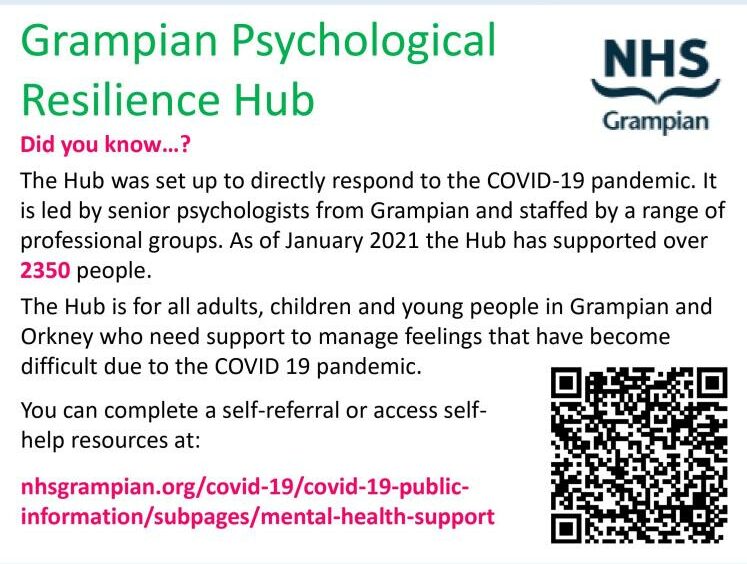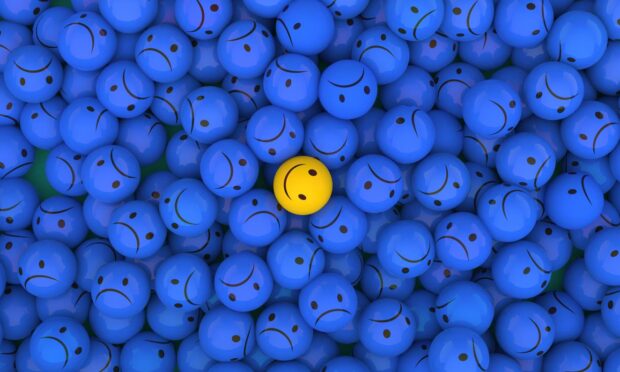Normal feels different these days.
Pupils across the country are starting to find their feet again as schools look more and more normal – in-class learning, school sports, traditional exams.
But this year is the first full year in a ‘normal’ environment in almost two years. Pupils, especially younger ones without as much experience of what school is like, have come to see Covid-19 disruptions as standard procedure.
And, of course, Omicron, self-isolation and Covid-19 are still unexpectedly disrupting classes.
These adjustments can be difficult for young people. So on this year’s Blue Monday, we’ve put together a selection of mental health resources available specifically to young people across the north and north-east.
Whether it’s an in-school council programme or an online support platform, there is help out there for those who need it.
Mental health is a process, not a destination
There is some discussion over whether Blue Monday is a myth, but psychological trauma is real. Local authorities, NHS boards and private providers offer a variety of advice and support packages to inform young people, parents and carers about mental health needs.
Carron Douglas, Aberdeenshire’s principal educational psychologist and chair of the area’s multi-agency Mental Health GIRFEC (Getting it Right for Every Child) group, says it’s important to think about mental health as something that will fluctuate.
Just like physical fitness, it needs attention and she said that it’s important to have staff across the council’s services trained to recognise the signs of psychological trauma.
“This means being responsive to the needs of some of the most vulnerable members of our communities, understanding how poor mental health can impact on behaviour and working together to support people to achieve positive outcomes.
“We’re absolutely working on it – across both child and mental health services – to deliver on behalf of our communities.”
Dedicated hubs in Grampian
The Grampian Psychological Resilience Hub was set up by NHS Grampian in 2020 to support mental health in response to the Covid-19 pandemic. By the end of 2021, thousand of people had accessed the service, available to everyone in Grampian and Orkney.
The Hub isn’t an emergency service or long-term treatment option. But it does provide short-term courses on psychological first aid and accepts referrals for children and young people.

You can refer yourself or a family member to the Hub online.
Aberdeen City Council has its own online resource hub, the Educational Psychology Service Digital Hub.
The site offers advice for parents, carers and school staff on subjects such as anxiety management, home learning, emotion coaching and more.
NHS Grampian is also helping Aberdeenshire and City councils to deliver in-school anxiety management training.
Round-the-clock support
Like it or not, the world has moved digital in the last few years. Covid-19 has only accelerated that transition. Teachers are looking online to deliver lessons and there’s no shortage of ways kids can connect online.
One of those platforms, Togetherall, gives young people aged 16 and older an anonymous place to discuss mental health. It provides 24/7 support and a place to share thoughts with peers.
The anonymous system is constantly monitored by professionals. It provides a variety of self-help courses and activities on top of the round-the-clock support.
Last spring, we discussed how Togetherall and another system – Kooth – were helping Aberdeenshire pupils readjust to life after lockdown.
Now, Togetherall has similar partnerships with the University of the Highlands and Islands, the University of Aberdeen and the Orkney Islands Council.
If your local authority or university is registered with Togetherall, access is free. You can register online and include your postcode instution’s information for access.
Aberdeenshire Council also has a partnership with Kooth, which is a one-to-one online counselling service for kids aged 10-18. You can get help by emailing aberdeenshire@kooth.com or register online at Kooth’s website.
Child-focused support in the Highlands
There are more traditional services available to young people across the Highlands through schools and council services.
Moray Council recently rolled out a service called to give schools access to counselling for young people aged 10-and-older.
Local referral-based support
The programme, ‘The Exchange,’ had received almost 400 referrals from primary and secondary pupils by the end of 2021. According to a council survey, 90% of those surveyed said the counselling helped improve relationships and self-image.
The council also works with Action for Children to provide intensive family and mental health support for young people aged five-26. You can refer yourself to the service by emailing sonas@actionforchildren.org.uk. Or, check their online resources for tips on managing stress, mental health and more.
Professional assessments, interventions and consultations
The Pheonix Centre at Raigmore Hospital is headquarters for NHS Highland and Highland Council’s Child and Adolescent Mental Health Service.
The service provides assessments that range from a simple conversation to art- or play-based assessments.
To get in touch, call 01463 705597 or email the team at nhshighland.phoenixcentre@nhs.scot.
Read more from the Schools and Family team
Covid in schools: Weekly absence reports show increase in sick pupils
Survey: 2021 left teachers ‘exhausted, anxious and demoralised’
